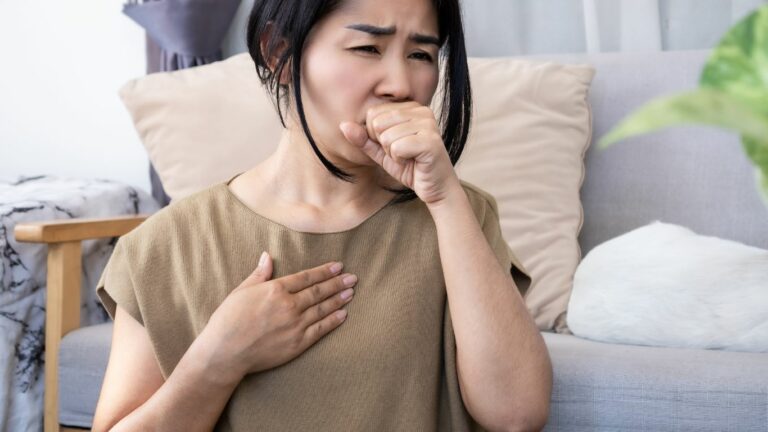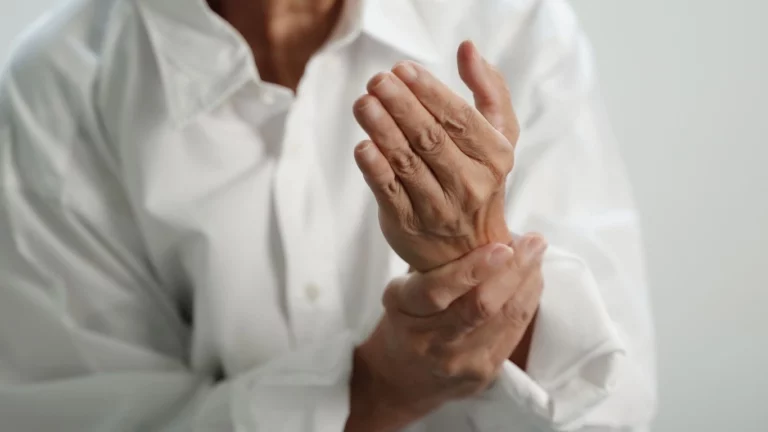🌬️ Rheumatoid Arthritis and Its Link to Lung Disease: What You Need to Know
Okay, let’s talk about something that’s not always on people’s radar when it comes to rheumatoid arthritis (RA). We all know RA messes with your joints, but did you know it can also have a big impact on your lungs? It sounds crazy, right? But the truth is, if you have RA, your lungs could be at risk too. Let’s break it down in a way that makes sense, and I’ll share some stuff I’ve learned along the way.

So, What Exactly Is Rheumatoid Arthritis? 🤔
Rheumatoid arthritis is an autoimmune disease. Your immune system, which is supposed to protect you from bad stuff like viruses, gets a little confused and starts attacking your own healthy tissue—mostly the joints. This leads to pain, swelling, and over time, damage to the joints. But here’s the kicker: RA can mess with more than just your joints. It can affect your lungs too, and that’s where things get interesting (and a bit scary).

RA and Lung Disease: The Unexpected Connection 🌬️
You’d think RA would just stay in your joints, but it doesn’t. Over the years, I’ve read stories and heard from folks who’ve had to deal with more than just joint pain. Turns out, the same inflammation that’s attacking your joints can also target your lungs, leading to some serious complications. It’s like the inflammation just doesn’t know when to stop.
1. Chronic Inflammation 🛑
In RA, the immune system is constantly in overdrive, and this inflammation doesn’t always stay put. It can spread to other organs, including the lungs. When this happens, it can cause scarring (called pulmonary fibrosis), or lead to other lung issues like shortness of breath or chronic cough. This is one of the reasons why regular check-ups and lung function tests are super important.
2. Medications and Their Side Effects 💊
So, you’re probably thinking, “Okay, I’ve got my meds under control, right?” Well, sometimes the meds we take to manage RA can affect our lungs too. Methotrexate, for example, is a common treatment, but in some cases, it can lead to lung issues like irritation or even scarring. It’s rare, but it’s something to be aware of. If you start feeling a bit off—like you’re short of breath or coughing more than usual—don’t ignore it.
3. Smoking: The Double Whammy 🚬
Here’s a huge one that a lot of people don’t talk about enough: Smoking. If you’re a smoker and you have RA, you’re basically doubling your chances of getting lung disease. That’s because smoking is already bad for your lungs, and with RA, you’ve got the added inflammation thing going on. If you’re still smoking, now might be the time to kick the habit for good.

Symptoms of RA-Related Lung Issues 👀
If you have RA and start noticing new symptoms, don’t brush them off. Here are a few things to watch out for:
- A dry, persistent cough that doesn’t seem to go away.
- Feeling out of breath after doing stuff that wasn’t a problem before.
- A general sense of fatigue, even after resting.
- Chest discomfort or pain when breathing.
- Wheezing or extra mucus.
If any of these sound familiar, don’t wait. Talk to your doctor ASAP.

Troubleshooting Some Common Issues 💡
If you’re managing both RA and lung problems, you’re not alone. A lot of people are dealing with this, and there are ways to make things easier.
Breathing and Mobility Struggles 😓
I get it, some days it feels like the joints and the lungs are both against you. Breathing problems can make even simple tasks feel impossible. That’s where physical therapy and breathing exercises can really help. It sounds a little basic, but trust me, learning how to breathe deeply and strengthen your chest muscles can make a world of difference.
The Medication Balancing Act ⚖️
Some RA meds are great for controlling inflammation but might cause lung problems down the line. If you notice new issues after starting a new medication, let your doctor know. They may tweak your treatment plan, or maybe try a different medication. The goal is to keep your joints happy without causing more lung issues.
Mental Health Matters 🧠
It’s easy to feel overwhelmed by dealing with chronic conditions like RA and lung disease. I’ve talked to folks who’ve mentioned how mentally exhausting it can be to manage both. Don’t ignore your mental health. Whether it’s therapy, joining a support group, or just taking time for yourself to relax, make sure you’re taking care of your head too.
Real-Life Stories: How Others Are Managing 💪
Sarah’s Story: A Wake-Up Call
Sarah, a friend of mine, was diagnosed with RA a few years ago. A couple of years in, she started having trouble breathing, but chalked it up to just being tired from managing RA. It wasn’t until she mentioned it to her doctor that they realized the RA was affecting her lungs. With some changes to her treatment plan and a bit of lifestyle adjustment (hello, quitting smoking), Sarah’s feeling better and breathing easier. The moral? If you notice anything out of the ordinary, get it checked out.
Tom’s Journey: RA and Lung Health Don’t Have to Be a Death Sentence
Tom’s another person I know who’s been battling RA for over 20 years. A few years ago, he noticed some lung issues cropping up—coughing, shortness of breath. His doctor suggested he try pulmonary rehab, and it worked wonders. By focusing on strengthening his lungs and adjusting his RA meds, he’s still living his life and managing both conditions. It’s all about catching things early and staying on top of your treatment.
Key Takeaways / Summary 📋
- RA isn’t just about the joints—it can also mess with your lungs.
- Chronic inflammation, certain medications, and smoking all play a role in lung disease in people with RA.
- If you’re dealing with new symptoms (like a cough or shortness of breath), get them checked out ASAP.
- Taking care of both your joints and your lungs requires a full-body approach: exercise, quitting smoking, and mental health care all matter.
- Early intervention is key to keeping things under control and living a better life.
FAQs: Your Burning Questions About RA and Lung Disease 🤔
Can RA actually cause permanent lung damage?
Unfortunately, yes. Chronic inflammation can lead to lung scarring and other permanent damage if it’s not treated early. The sooner you catch it, the better the chances of preventing long-term issues.
What’s the most common lung issue people with RA face?
Pulmonary fibrosis is one of the big ones. It’s when the lung tissue gets scarred and makes it harder to breathe. RA can also cause pleuritis or increase the risk of lung infections.
If I quit smoking, can I reverse lung damage?
It’s never too late to quit smoking! While some damage might not be fully reversible, quitting can help stop things from getting worse and improve lung function.
Call to Action: Take Charge of Your Health! 🚀
If you’re dealing with RA, don’t wait to talk about your lung health. The sooner you catch things, the better off you’ll be. Talk to your doctor, ask the right questions, and take charge of your treatment. You’ve got this!






